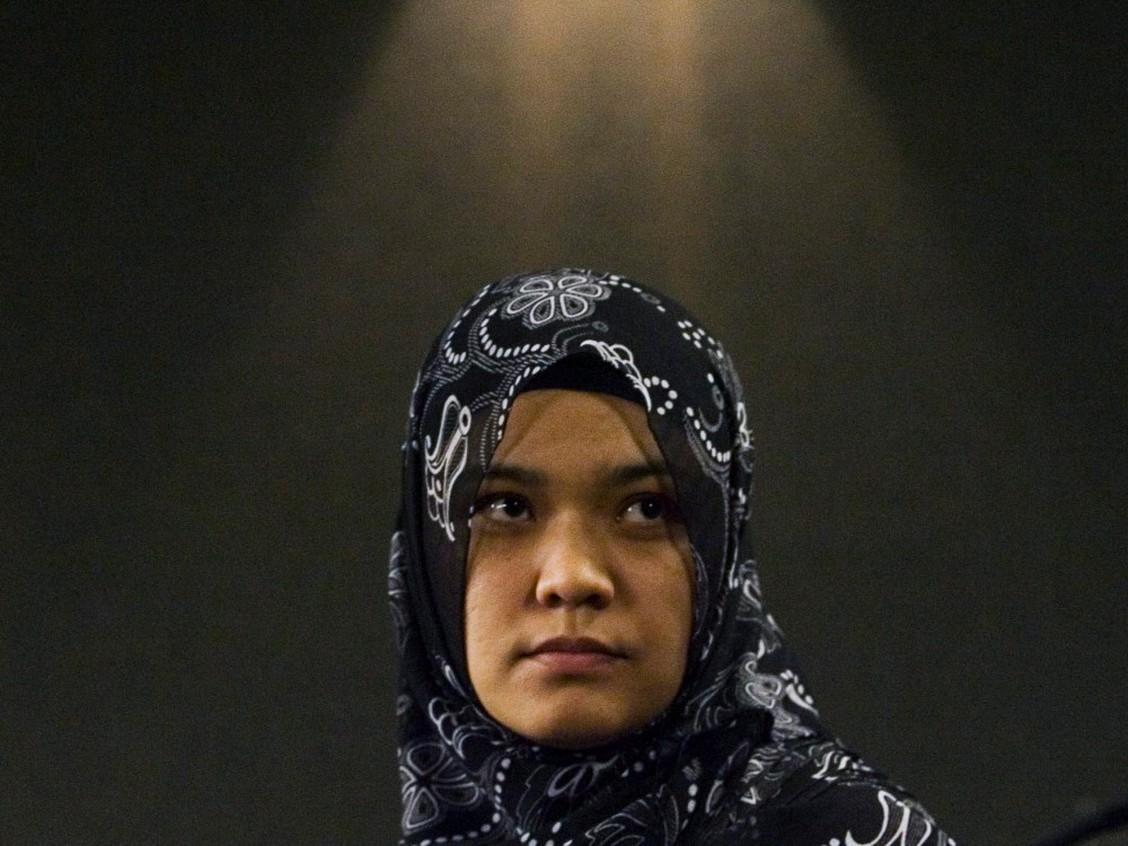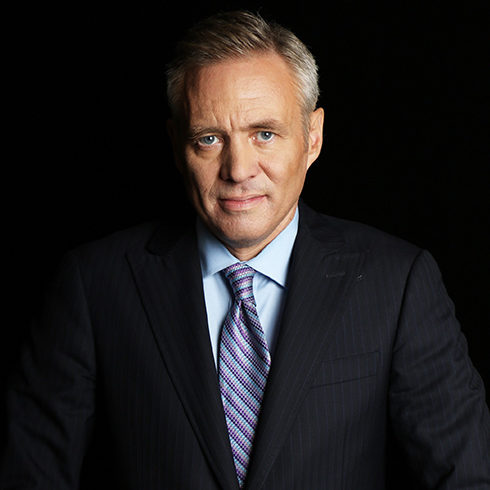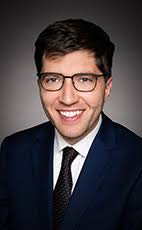Testimonies
From Kamila Talendibaevai and Chris MacLeod
Subcommittee on International Human Rights of the Standing Committee on Foreign Affairs and International Development on HUMAN RIGHTS SITUATION OF THE UYGHURS
July 20, 2020
On October 20, 2020, the Subcommittee on International Human Rights of the Standing Committee on Foreign Affairs and International Development agreed to a motion to undertake a study on the human rights situation of the Uyghurs. This motion incorporates all evidence received during hearings held from July 20 to August 13, 2020, in the 1st session of the 43rd Parliament – including Kamila and Chris’ testimonies.
On March 12, 2021, the Subcommittee published ‘THE HUMAN RIGHTS SITUATION OF UYGHURS IN XINJIANG, CHINA‘.
Kamila’s Testimony
Kamila Talendibaevai
“Thank you.
First of all, I want to thank all of you for giving me the opportunity to speak about the Uyghur people’s rights, and especially my husband’s case. It has been 14 years. As Chris said, it’s been a long 14 years. Maybe lots of people, members of Parliament, are aware of that case, and—
I was saying to you that we had to extend our visit in 2006 in Uzbekistan, and that same year, in July, he was deported to China. Chinese courts ordered him to be deported to China, and now, since 2006, I’ve had no communication, no mail and no calls from him. You know, it’s been 14 years.

Kamila Talendibaevai
Huseyin's Wife
I have been keeping in touch with his family two or three times a year since it began in 2014. Since 2016 I have lost communication with his family in East Turkestan. His family lives in the city of Kashgar. They used to come every six months to visit him in Urumqi.
He doesn’t have consular access, and he’s never been approved for consular access, which we keep asking for every year from the Canadian ambassador. You know, we have to check his health, how he’s doing, if he’s alive, how he is doing in the prison in China. We didn’t get any answers. We were getting little by little, you know, every six months, a little information about his family, from his family. Right now, how many years is it now? It’s four or five years, and I don’t have any communication, no information. I cannot call their phones or WeChat, WhatsApp, as those kinds of apps are blocked. I don’t have any information from his family.
It seems when we can’t change his case…I don’t have anything to say. It’s very frustrating. You know, it’s been 14 years I’ve been bearing a big strain and then the biggest frustration.
I have four boys. They have grown up. They became teenagers. They’re all in high school. They are preparing for university. It’s been very difficult. I cannot describe in one or two words my last 14 years and what I went through in these 14 years.”
Heather McPherson
“It’s very difficult to go after that testimony.
First of all, I want to thank all of you. I can’t imagine what you have to go through, to not know where your father is, or where your husband is. Excuse me….
I’m incredibly moved by your bravery to be here and your bravery to share these stories. I’m sorry that you have to relive this pain by sharing this with us.
There are a few things I wanted to ask. One is for Kamila. I know that you are raising your family alone and that you have not been able to see your husband for 14 years, and you don’t know where he is or how he is.
I know that Christopher MacLeod was able to talk a little bit about what Canada could do now and what we could do to help bring Mr. Celil home. I wonder if you wouldn’t mind taking some time as well. I know we didn’t get a moment to hear from you on what you would like to see Canada do now to help with your husband’s case. I would really welcome hearing from you, if that’s possible.”

Heather McPherson
Former Canadian Member of Parliament for Edmonton Strathcona
Kamila Talendibaevai
“Yes. Thank you.
First of all, I’m raising four kids, four boys. They became teenagers. I was pregnant when they arrested my husband. I was three months pregnant, a mother. Can you imagine for a moment?
It’s been 14 years, and now my son is going to be 14 in August. I can’t see….
It’s been so many long years. Months, weeks and years passed. Even if you had a communication, a little bit of information, like emails or calls through his family, that kind of information…. A little piece of information would be a relief to us, a little bit of keeping in touch with their father. He’s still alive, but he’s in prison. They are trying to bring him back where he belongs.
In this 21st century, with so much technology, we have nothing . We have no calls, no information, no mail, no letters, nothing.
But I’m very thankful for the Canadian government. I’m lucky I’m living in Canada. I’m growing my four boys [Inaudible—Editor] four boys in Canada. I’m giving all my best to give them a good education, the best education in Canada, but I always tell them they have to be very proud of their dad. He has spent 14 years away. I don’t want to say how long he’s going be there. I don’t even want to think about one year or two years in this pandemic world with what’s going on in China right now, because in Canada how we are living right now, in the pandemic….
To the Canadian government, first of all, I want to say thank you. They raised every opportunity. The Conservative board mandated all its best, but China is a different country. China was rejecting my husband’s Canadian citizenship, and then not giving consular access. They tried, but it was not enough. At that time it was not enough. When they helped the first year, they had to act quickly, immediately, but they were late to act.
Now it’s been 14 years. My husband is in prison. I don’t know what kind of conditions he may be in. I cannot even…. We don’t know if he’s alive or not, since 2015. Maybe they have been brainwashing him with Communist laws, making him study Communist laws and join the Communist Party, that kind of thing. It might happen in China.
My last word is to the Conservatives, Liberals and NDP. They all need to be together in that case. I don’t want them to push that case away from the table. There’s the two Michaels case, I know, and I want to raise the case every time, to bring that to the table in the House of Commons. I want to raise that case. Members of Parliament, what’s going on with that [Inaudible—Editor] case? What’s going on? What are we going to do? They have to see it on the table and make the decision to send…I agree with Chris MacLeod to send a special envoy to China.
It’s hard. It is very difficult. It is hard, you know. It is hard to get education. For education and after-school programs, I was running everywhere. It’s a very big challenge.
Especially in this pandemic. Right now we are…. Yes, that’s been tough.”
Heather McPherson
“For all of the panellists, one last question I can bring forward is in terms of our supporting the Uyghur community: Who have been the most effective allies in the fight to end these human rights abuses? Whose voices are best to be amplified right now? What else can we do for you at this time?”
Kamila Talendibaevai
“There are a lot of Uyghur people working on human rights right now for the concentration camps. There are multiple people working on human rights.
My suggestion is that the Canadian people need to be aware of this case, be aware that he’s a Canadian citizen. All Canadian people need to be aware and put pressure on the Canadian government, and then work together.
The parties also need to work together on this case. They should not push from only one party. The Liberals, the Conservatives and the NDP have to work together, and then connect with Amnesty International. With human rights, we are all together.
We are sending letters. As much as we can, we are sending letters from high schools. We did a lot of presentations in high schools and in the communities. At least we are sending them. We don’t get anything back from the Chinese authorities, but the Canadian government sends us word that they are still working on this case, that they didn’t forget about it. What’s most important is that the Canadian people need to be aware.”
Chris’ Testimony
Chris Macleod
“Thank you.
I’ve been acting as legal counsel for Huseyin Celil and his family since his detention in 2006.
First, thank you for covering this important topic. I appreciate time is tight so I will speak quickly to cover as much ground as I can, and then turn it over to Kamila, Huseyin’s wife.
Let’s begin. I think it’s worth giving some background on Huseyin Celil’s case. I know that some members were not in the House in 2006. I know that member of Parliament David Sweet was and has been active and engaged in the file.
Huseyin Celil was raised in northwestern China. He’s a Muslim Uyghur within the Uyghur community. He speaks out in China in favour of his ability to practise his language and his faith. For this he faces persecution and detention in China. Ultimately in the late 1990s he leaves and treks across Asia into Turkey. In the city of Istanbul he declares and is given UNHCR refugee status. This time he and his wife Kamila and their three boys ultimately immigrate to Canada as UNHCR refugees in 2001, become permanent residents and ultimately Canadian citizens.

Chris Macleod
Huseyin's Lawyer
In 2006 Huseyin, Kamila and their three boys decide now that they are Canadian citizens to travel on Canadian passports to Uzbekistan, with temporary travel permits obtained from Uzbekistan, to visit Kamila’s family. While there one of their boys falls ill. Huseyin decides, in accordance with proper regulations, to renew that travel visa. When he goes to the appropriate authorities in Uzbekistan to renew that on his Canadian passport he’s red-flagged because Uzbekistan and China, unknown to Huseyin at the time, have a treaty. They’re part of the Shanghai besh, seven countries that share information on political dissidents.
Huseyin, on March 27, is detained in Uzbekistan. There’s a period of about 90 days when he’s in Uzbekistan, and people in Canada and on the ground are trying to determine what to do. The Uyghur community in Canada is loud and clear, as are we to the Canadian government, that this is the moment to get Huseyin out. It’s China that wishes to obtain him. Ultimately, Uzbekistan transfers Huseyin to China in or around July 2006. He faces a trial. He is sentenced to death, and ultimately through the interventions of the minister of foreign affairs at the time, Peter MacKay, that death sentence is commuted to a life sentence.
The Canadian government has never had consular access to Huseyin Celil. Kamila and the family had updates from Huseyin’s family in northwestern China up until 2016 when all went dark. We haven’t had any word from Huseyin’s family there. We’ve never had direct communication with him. This is really a long-standing Canadian tragedy where we have a Canadian citizen detained in China, who didn’t travel to China on a Canadian passport, or at all. He went to neighbouring Uzbekistan as a Canadian citizen to visit his in-laws. There, and this is where we have a case of rendition, Huseyin was ultimately transported by the Uzbeks to China, or the Chinese came into Uzbekistan and picked him up and transported him there.
The trial was had. At the time, then prime minister Harper ordered the embassy staff out of Beijing to go to the courtroom and wait every day to find out when there would be a trial and try to gain access. They ultimately were never allowed in to hear the trial. An appeal was taken.
That’s been the long and unnecessary saga of Huseyin’s case.
We’ve always asked, and I’m going to ask again, for two things. One is that the Prime Minister appoint a special envoy specifically tasked with seeking the release and return of Huseyin Celil. We want a special envoy, as opposed to the embassy and the ambassador, because the single task of the envoy will be to seek the release and return of Mr. Celil, figure out what needs to be done to make that happen. It’s been 14 long years.
As for Kamila, I’m not sure if we have her in the room at the moment, but we’ll now go into additional details about the challenges she’s faced with her four young children. The four boys, Hussein’s children, Kamila’s children, haven’t seen their father in 14 years. One, Zubeyir, was actually born after his father’s detention. This is a Canadian tragedy. It’s been long languishing. When the crackdown on the Uyghur community in northwestern China commenced, we already had no consular access. We’ve now had absolutely zero information since 2016 on his state and his situation.
Number one, a special envoy should be appointed by the Prime Minister seeking Huseyin Celil’s release and return. The second would be that we have all-party co-operation in this regard. I recall when the Conservatives were in power, Minister MacKay commuted the sentence from death to a life sentence. Member of Parliament Sweet and member of Parliament Kenney were two active Conservatives at the time. Member of Parliament Gould has also been active, but we haven’t had non-partisan action where all members of the House in unanimity are all rowing in the same direction.”
I’m going to share the rest of my time with my colleague, Mr. Chair, but I wanted to say just one statement to Mr. MacLeod. The statement is that I thank you very much for all of your advocacy in regard to Huseyin Celil. I regret that years have passed and we’re not any further along, but we will continue do the best that we can to seek his ultimate release.
Garnett Genuis
It just floored me at the time. In a way it still does, that in testimony specifically where the ambassador spoke regularly about a number of important cases of Canadians detained in China, not only would he not mention the Celil case proactively but that there was that misstatement about Celil’s citizenship.
I know it’s important for you to work with the government on this, Mr. MacLeod, so I’d like to ask this: Have you been able to have any follow-up engagement with Ambassador Barton? Has he recognized the reality of Mr. Celil’s citizenship, and is he taking it up with the same seriousness that he is taking up the cases of other Canadians detained in China?

Garnett Genuis
Canadian Member of Parliament - Sherwood Park—Fort Saskatchewan
Chris Macleod
Thanks for the question.
Following that—which I agree that it was disappointing that the ambassador had not been properly briefed—is that at the early stages in 2007, 2008 and 2009 and onwards, you’ll recall that there was very deep engagement. Prime Minister Harper was pushing hard, with Minister MacKay, Minister Kenney, Mr. Sweet and many others, so it was disappointing to hear that the ambassador hadn’t been fully briefed.
However, I know, and Kamila I think would speak to this if we can get her on today—to give at least a couple of minutes, I think it would be warranted—that the ambassador did call her and spoke to her directly and personally about that slip and clarified the record. He acknowledged, of course, that Huseyin is a Canadian citizen, which is why I wanted to take at least two minutes when I commenced my remarks to the committee to remind everyone that Huseyin has only flown on a Canadian passport. Most troubling is that some of the issues, and the reason he was detained, may well have arisen again because of his activities in Canada, speaking about religious freedom and religious freedom of expression.
Thank you for raising that right now. It’s one of the reasons we’ve also always called for a special envoy. An ambassador has multi-faceted roles in any embassy, particularly in China where the relationship is so multilateral and so multi-faceted. A special envoy who would report directly to the Prime Minister, or perhaps to the committee, to say what we need to do to obtain the release and return of a Canadian citizen languishing in prison in China—
Garnett Genuis
Mr. MacLeod, certainly it would be important to me that the Canadian government and our ambassador are as engaged and seized with the cases of dual nationals detained in China—people like Mr. Celil, Fan Wei and other dual nationals—as they are with other cases, such as the Kovrig, Spavor and Schellenberg cases, that don’t involve dual nationals. This is important because although China regards these kinds of cases differently, Canada of course should not regard these cases as being in any way different. Could you speak to that in the time left?
Chris Macleod
I could not agree with you more. Any Canadian citizen detained needs to be a Canadian we look after.
To be clear, Huseyin Celil, I would argue, is not a dual national. He is a Canadian citizen and Canadian citizen alone. As part of the Chinese constitution citizenship act, when you obtain citizenship of another country, which he did to be Canadian, you renounce your Chinese citizenship.
However, your point is well made, and I could not agree with you more.
